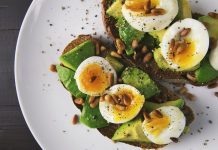Adopting a keto diet is not for everyone. It does have numerous benefits but it is not flawless. One of the issues that can arise has to do with your sleep.
That’s why you need to prepare yourself and your body before diving into the diet program. Poor preparation can lead you to experience the full effects of the keto flu, and you’d be quitting even before you start. One of the prominent symptoms of keto flu is insomnia, which could be because of the low level of fiber in your diet. Let us find more about how a keto diet can impact your sleep and wake patterns.
The Short-Term Effect: Disrupted Sleep Patterns
If you are familiar with the keto diet, you know that the program involves shedding weight. Aside from reducing numbers on the scale, the keto diet can also significantly impact your mental health, disease risk, and sleep patterns. Once you start your diet, you may notice that your sleep pattern dramatically changes.
In the initial phase of your keto diet, expect that you may have insomnia. This is a common complaint among first-time keto dieters as they transition to the diet. Why? It has a lot to do with the change in the levels of serotonin in your body. You know that carbohydrates are the primary source of the body’s energy as they get converted to sugar or glucose once the body processes them. They are also responsible for supplying the body with L-tryptophan, which produces serotonin. This serotonin is the neurotransmitter that helps calm the body and improve sleep quality. This neurotransmitter becomes melatonin, which is the body’s sleep hormone.
In a keto diet, you deprive your body of carbohydrates, resulting in depleted levels of L-tryptophan. Therefore, your body has low levels of serotonin and melatonin, which is necessary for inducing deep and quality sleep.
The Long-Term Effect: Improved Quality of Sleep
However, once your body adjusts to this lack of carbohydrate supply, you can hurdle this initial bump and experience better sleep patterns. This claim is backed up by a study that was published by the International League Against Epilepsy. The study claims that while keto dieters have shorter amounts of sleep, the quality is much better, as evidenced by their rapid eye movement (REM) sleep.
Foods to Help Prevent Insomnia
If getting enough sleep is crucial for you, there are tons of food items that you can try to supplement your body with. You can choose from food items that contain healthy amounts of tryptophan such as almonds, and turkey. You can also consume food items with high levels of melatonin, such as oatmeals and cherries. If you are not lactose intolerant, you can also have a glass of milk before bedtime.
Underlying Health Conditions
However, one should not discount the fact that a person’s sleep patterns can also be affected by current health conditions. According to Dr. Krueger Sleep & Sinus Clinic, changes in sleep patterns can also be affected by underlying health conditions such as nasal anatomical issues and sinusitis. As such, it is essential that those with pervasive insomnia should first consult with their doctors to assess their condition properly.
Getting a better overview of your overall health will help facilitate the success of your keto diet. You would not want to quit in the middle of the diet before it becomes effective just because you have underlying health issues that need an immediate remedy. More so if it concerns your sleep as it can have a significant impact on your general health.




